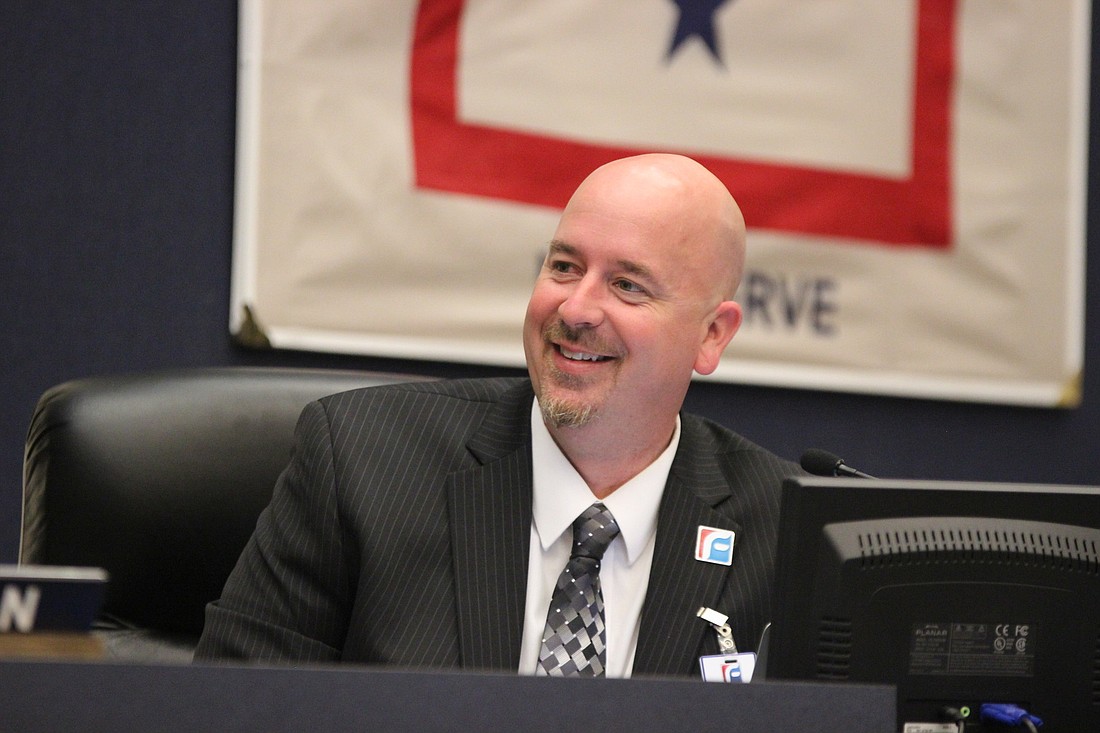- February 27, 2025

Coming soon to a Flagler County school near you: Kindergarteners in lab smocks and fourth graders finessing the instruments of Boeing 777s. That’s not quite the case, but the school system is addressing workforce readiness with younger and younger students, working with the county’s elementary schools to develop flagship specialty programs.
“We’re not asking students to pick their career in third grade, per se, but they’re going to be exposed to different careers, so they understand what they’re learning can apply to different settings,” Superintendent Jacob Oliva said.
The county’s five elementary schools will start their programs in earnest this August, but two schools – Rymfire and Bunnell have systems already in the works.
Rymfire’s program is focused on medical sciences and physical fitness, while Bunnell is adopting a “green” take on the Sciences, Technology, Engineering, and Mathematics (STEM)-based curriculums sweeping the nation.
At Bunnell, Danielle Burton’s fourth graders used an advanced solar oven to toast s’mores. Even with overcast skies, the oven heated to a balmy 350 degrees, much to the surprise of students. The technology provided a hands-on supplement for the established fourth-grade science curriculum, which includes a survey of different types of energies.
“I think the important thing for the elementary school age is really to pique interest,” said Burton, who is the flagship coordinator at Bunnell. “The technologies are a little advanced for some of the curriculum that we have, but you can take some of that advanced thinking and implement it from kindergarten on.”
Other examples of the newly-implemented tech include underground cameras, a greenhouse, watershed, weather station, and an ebb-and-flow watering table for hydroponics. All use recycled rainwater.
“I think green has been a buzzword for the last 10 years, but now it’s really starting to get further,” Burton said.
Bunnell’s program has been in place for less than a year, but the results have led educators like Burton to look for ways to ingrain the technology more into the day-to-day schooling experience moving forward.
“Our job now is to take all these technologies and things we’ve gotten in the school and turn into some really good curriculum for next year,” Burton said.
The reason for expanding career-minded flagship programs to elementary schools is simple. With top college prep programs becoming more selective and competitive, students need a foundation.
“Some of the programs you have in high schools now, said Oliva, “accelerated curriculums, dual enrollment, advanced placement, IB -- require prerequisites before you get to high school...We hardly ever had these conversations in elementary schools, which is one of the reasons we went back and talked about exposing students to college and career readiness at an early age, so they can see the relevance of what they’re learning and how it’s going to correlate to them.”
The programs are and will continue to be financed through grants and schools’ internal accounts. Those accounts, which are bolstered by PTO fundraising, are at the discretion of the principals. Oliva likened funding for the flagship programs to high schools’ budgets for sports referees and other extracurriculars.
“The hope is that when kids get excited about they’re learning they can continue that into middle school, they continue that into high where they can earn college credit,” Oliva said.